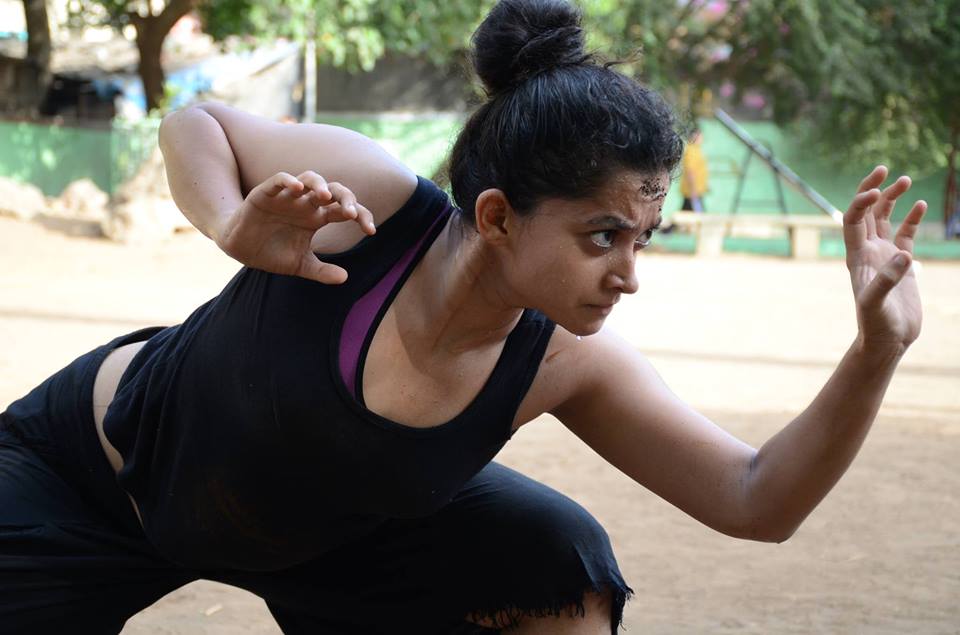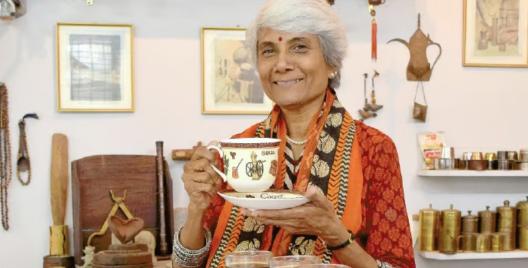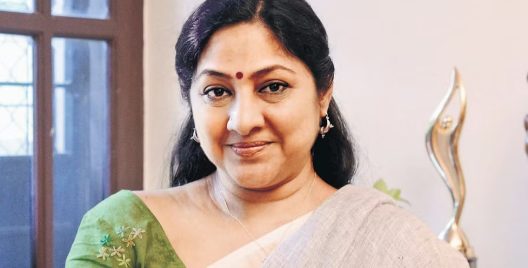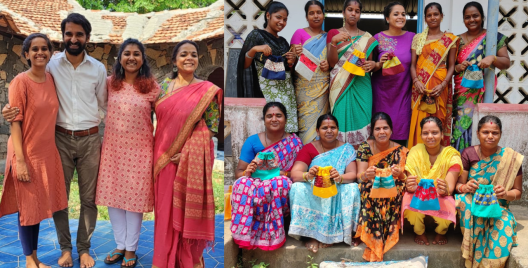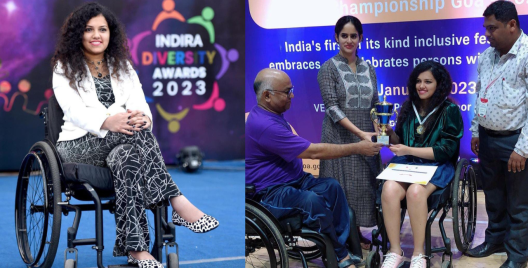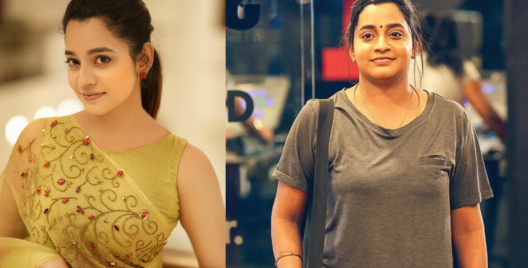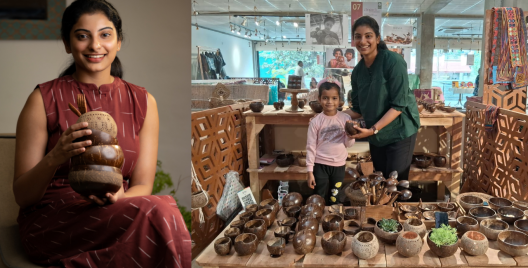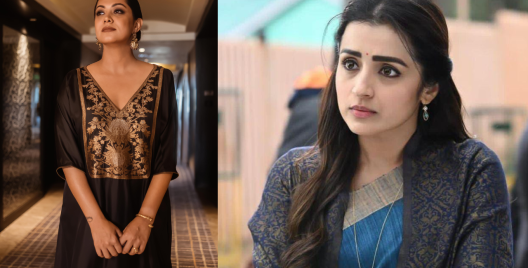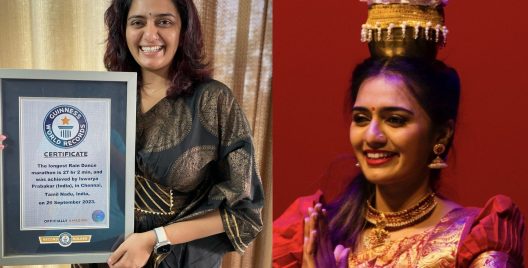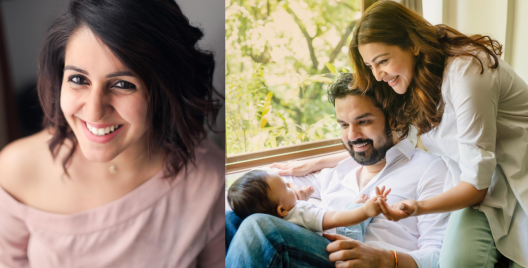An engineer, a theatre artist and a Kalaripayattu trainer. How has the journey been for you?
Like any other child born to ambitious parents and studious siblings, I was tempted to do engineering because I believed it was the way to go. I knew that through this, I could earn and save more. However, when you find something more passionate than money, that’s when you have this fire burning inside you to do something larger than life and that’s when I got into theatre – I would do various small and big roles. As I was hunting for theatre schools to hone my skills, I stumbled upon Adishakti Laboratory for Theatre Arts Research, Pondicherry and fell in love with Kalaripayattu and Kudiyattam, a Sanskrit play-form celebrated in Kerala. I really fell in love with the strong yet elegant Kalari, a beautiful form of martial arts that blends the best with nature and the human body – I don’t think I was mesmerized by anything as immensely as I was with this.
My training at Kalarigram with my Guru Lakshman ji and Nikhil was the most fruitful period of my life. You know it’s the right choice when you are voluntarily involved in it and are learning it with utmost concentration. I also had the chance to practice other activities I loved, like Carnatic music; basically I had all the opportunities and encouragement I required. The journey has been self-discovering and very reflective ever since.
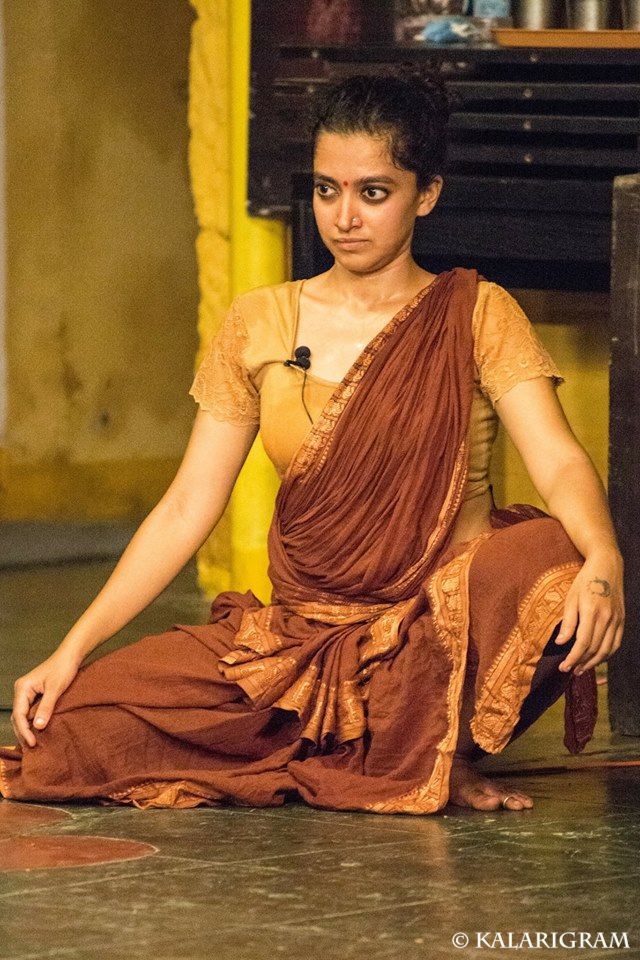
How did you become a Kalaripayattu trainer?
My guru Lakshman ji suggested that I start taking classes in Chennai. But, obviously I never considered that as an option. A guru of mine, Nikhil said that he was busy with Ayurveda and he requested me to begin warm-up sessions with his students. So, I began warm-ups and eventually, he never turned up to the class and I had to take up the entire class – that’s when I believed that I could do it with great confidence. Ever since then, I have been unstoppable. We need to remember that each batch of students are different. Hence, I had to make sure that the way of teaching is different for each class. Overall, in life one must always be self-aware of everything and have a voice for oneself.
After Kalari, I had a voice for myself and I made my life decisions – it’s extremely satisfying.
Today, I have students who take the utmost effort to come to classes and that’s the most inspiring for me.
It is said that Kalari is not an easy form to learn. Do you agree?
Any form of martial arts is a cake walk. Unless you have the drive to overcome the obstacles that come your way, determined and practice every day, you will be unstoppable. Your pain, your hesitation will vanish once you attain all the above – you must have that zeal.
How do you teach self-defence to women through this art form?
Kalari, once learnt well, is the best way for self-defence. But, patience is equally required to master this. As a trainer, the first lesson I teach my students is to balance body and mind – that’s when a person is truly alert all day, every day. Only when you reach that stage, Kalari teaches you self-defence. There are three stages – stabilizing body and mind, and then you use weapons. Lastly, when you have been trained voraciously, that’s when one is taught bare-handed fighting where you learn about vital points that rightfully affect the attacker. Any art form, if learnt half-way or less, is very dangerous.
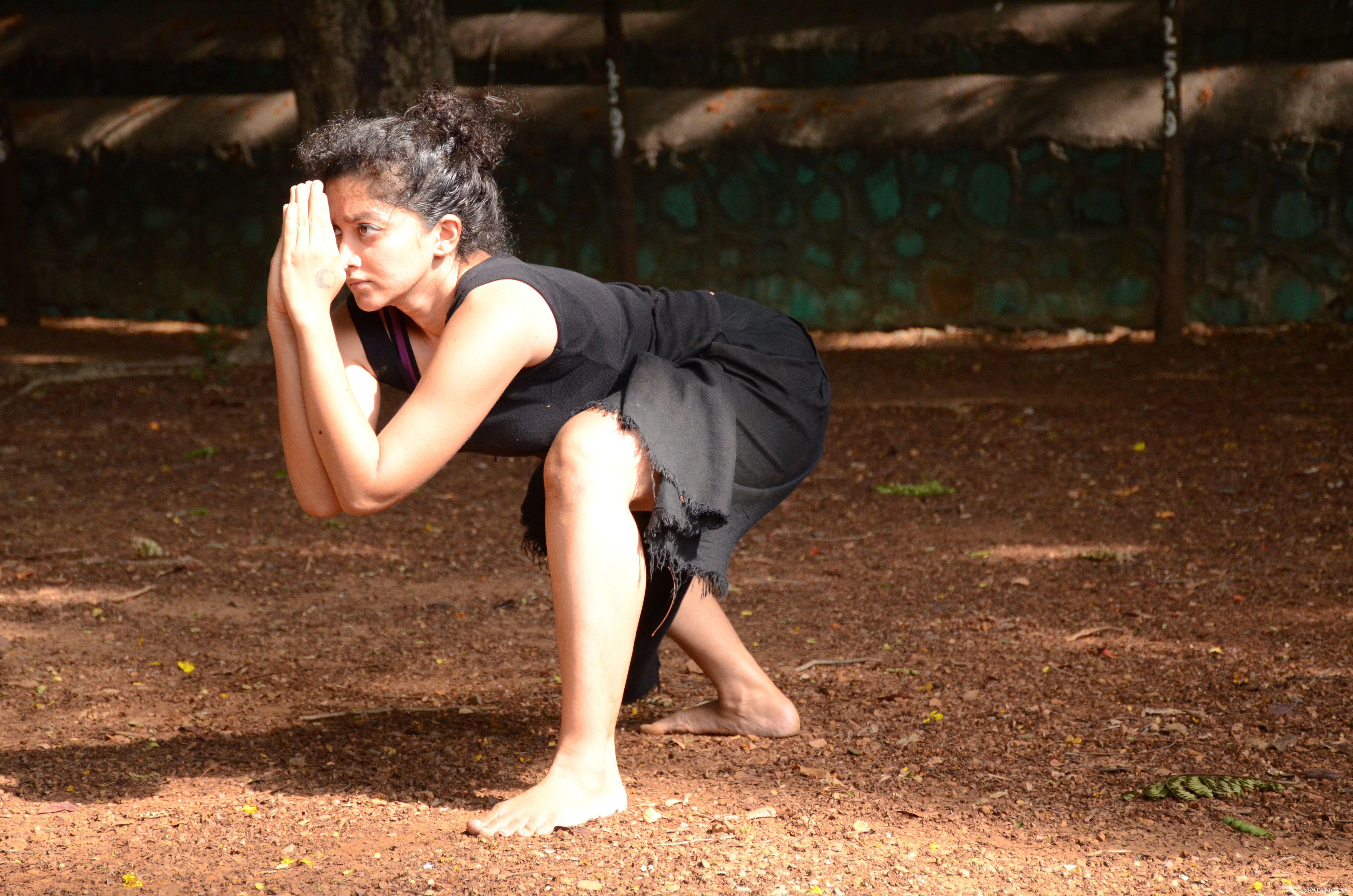
Kalari requires a lot of time and energy. Are your women students giving it all?
A teacher should cater to every student. Firstly, creating a safe zone with students gives them the encouragement. We should make sure practice is taken seriously and not made fun of or intimidate them. Initial stages would usually have students speaking about body aches, but their mind and soul will help them get better with practice. But, once they are trained and they all do the movements together, the happiness everyone attains is gratifying. Any form for that matter is preparing you to face the outside world – practicing it privately and then not knowing to utilise it – there’s no point to it. It’s imperative that anything you practice is useful to you.
We enquired women about why they would take up Kalari and most of their answers were weight loss. This false interpretation of body image seems to be prevalent everywhere. Your view?
We are never self-sufficient in life, we are always co-dependent and that is the ultimate reason why women think being in a particular shape is necessary – we depend on others’ opinions. When you practice something, be it Kalari or be it cleaning, religiously, you tend to reach your inner-self and that’s when you become self-sufficient and not learn something for the sake of body image.
I was “fat” at one point of time in life, but that was never the reason I learnt Kalari. I practiced it because I wanted to and that helped me gain great confidence. I learned to live a good life through Kalari.
What are your routine classes like?
Once I’m in my class, I’m consciously looking at every movement of every student. The way they align their hands and legs or their breathing exercises – I watch them all. Once I’m into that zone, I can never lose concentration until the end of the class. If I lose that concentration, my student could be in danger.
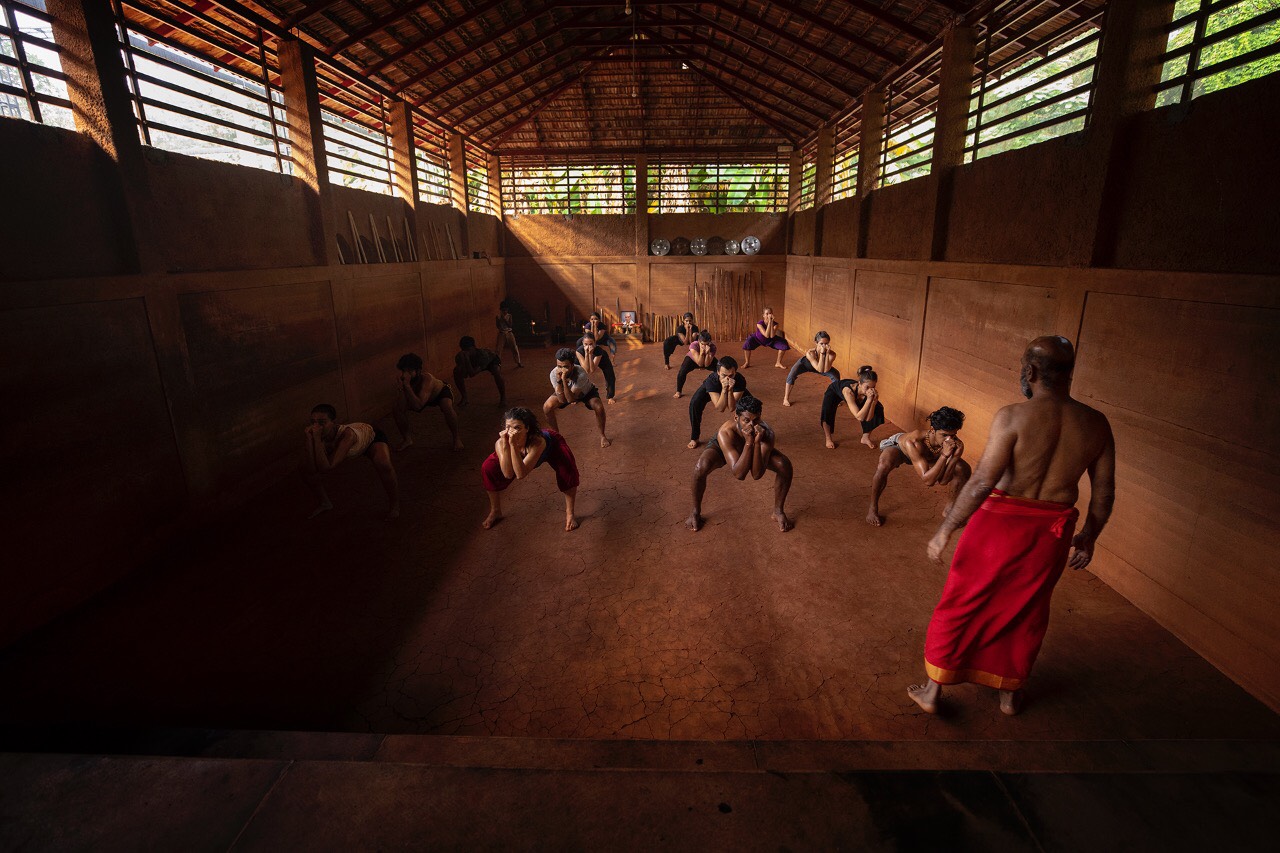
What are the questions your women students ask you when they join your class?
First will usually be the “weight loss” question, the next would be whether they would learn self-defence. Few have even asked me if I could hold late classes as early mornings are very hard.
Tell us about Kalari and its contribution towards mental health.
When you get into a pose in Kalari, our hands, feet, spine and mind must all align. When somebody attacks you, you must get into the pose of defence and get hold of a balance to further your move. Once you learn the align and balance – you’ve reached a high and that high is peace.
Basically, you must concentrate on yourself. Once you get that, you are physically and mentally strong, alert and present. It has made me courageous, rightfully opinionated and strong in every way possible.
Lastly, a word of advice for women who have been silent when they were victimised by society for being unapologetically themselves?
I think it’s worth being courageous. If you think you are being suppressed, you must say it out loud and bold without feeling bad or concerned about what the society would think of you. Do not shy away from saying the right thing. Silence is a very costly price you’re paying. Have a voice of your own, there’s nothing wrong about it at all.
KALARIGRAM, situated outside Auroville near Pondicherry, is a temple of Kalaripayattu and Ayurveda. Imparting knowledge in a gurukulam where students, artists and other practitioners from across geographies train in a traditional kuzhi Kalari, a fertile space to stay, practice, delve, create. It is also a performance space for artists in an alternative artistic space, organic and closer to nature.
A research space for Sri Vidya Tantra and Kalarigram hosts it’s annual Mahashivaratri festival Tantrotsav (Feb 24 – March 4, 2019), holding space and intention for performances around the same, making boundaries disappear between ritual and performance, merging spirituality, science and performing arts. Lakshaman Gurukkal is the Founder/Director of Kalarigram and the Director of Hindustan Kalari Sangham, Calicut. Subhashree is one of his senior disciples conducting classes for Kalarigram in Chennai.




